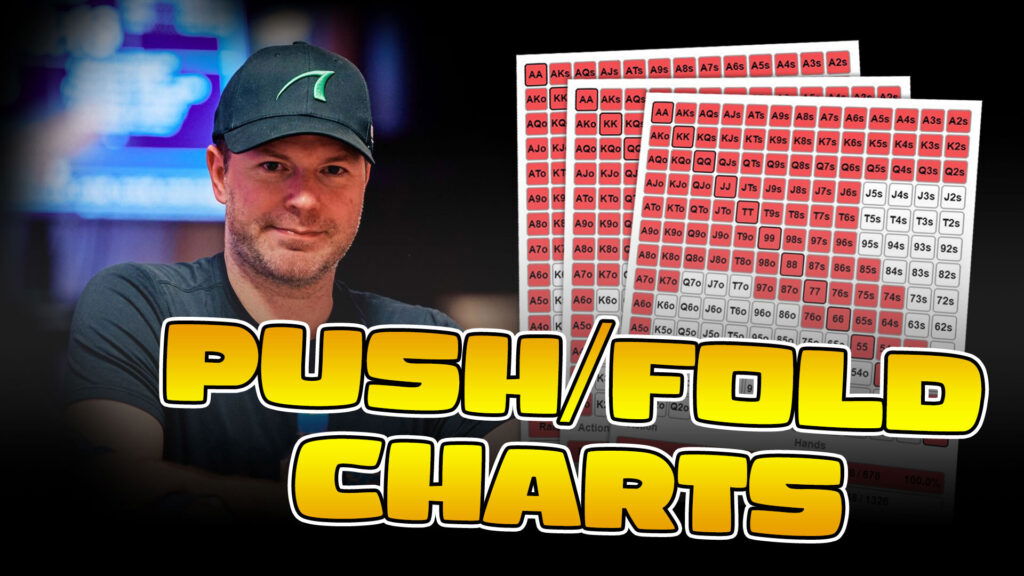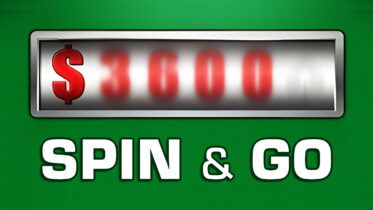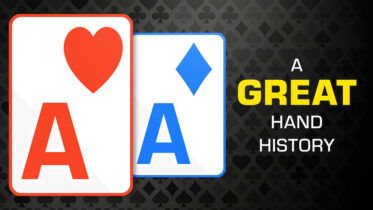Jonathan Little says that the key to making money at poker is finding a game you can beat and playing it a lot. As more and more poker players return to live poker, low stakes, live cash games remain the easiest variation of poker to make a profit in. While you may enjoy grinding microstakes tournaments on PokerStars and WSOP.com, if you want to take your poker bankroll to the next level it may be worth making the switch. If you are an online poker tournament grinder looking to make the transition to live cash games, you have come to the right place!
Being Patient in Live Cash Games
In poker tournaments, players are rewarded for firing their chips in constantly. Blind and ante structures are usually severe, which means picking up orphan pots is immensely important. In this environment, attacking and sometimes reckless poker is rewarded, leading to many tournament players get used to playing loose and aggressive constantly.
In live and online cash games, there’s less money in the middle of every pot. Less money means less incentive to steal with weak hands. In this environment, you can play more solid hands in position to make your money. You have time to wait for big pots in position.
Start With A Tight Table Presence and Adjust
In tournaments, you have to start attacking quickly as blinds and antes escalate. You never get a great read on your opponents and you don’t get to play many hands with them.
In cash game poker, you might play with some of your opponents every single day and have the time to develop nuanced reads. While you’re gathering intel, don’t give off information yourself, as people have a hard time shaking first impressions. If you play tighter poker when you first get into the game, people will label you as a nit. You can exploit that image later.
While this article pertains to live poker, if you happen to be playing cash games online, check to see if the sites you play on allow statistic tracking. then this is another edge you can exploit. Play solid poker and collect information on your opponents. When you’re not playing, pull up the statistics you gathered on your opponents and start drawing up a playbook to beat them.

Read one of the highest regarded articles on the PokerCoaching.com blog: The Bankroll Bible
Be Willing To Specialize In New Poker Strategies
In tournament poker, you are playing against recreational players who are comfortable allowing you to take the lead. Many of them will not take the initiative in a pot and will allow you to dictate the terms. By playing passively, opponents make your poker playing simple.
In cash games, players are comfortable playing with larger stacks and are willing to put you to the test more often. You will need to study poker away from the table to get comfortable in these deep stack situations. It can be a profitable play, for example, to three-bet raise button openers from the blinds. However, this situation will also see you playing out of position frequently. Playing out of position with deep stacks is one of the hardest things to do in No-Limit Hold’em. You will want to study before you play if you plan to engage in this situation.
Study the game before you get to the table and play lower stakes than you normally would play. If you play hard and collect information from your sessions, you will be able to apply what you have learned. Once you are comfortable with situations that make other players uncomfortable, you will have more tools in your toolbox and have the ability to better exploit opponents.
Mastering Facing The Big Blind As Well As Playing As The Big Blind
You can make good money raising with weak hands when players to your left are not three-betting or flatting enough. A frequent situation spot you will encounter are heads-up pots facing the big blind. When facing the big blind as the preflop raiser, your opponent is playing a raised pot out of position with a capped range. It’s hard to win when you’re in that disadvantageous of a situation. However, when you engage in this strategy you will sometimes run into players who three-bet or cold call you when they’re in position, a difficult spot when you started with a weak hand.
If you can drill playing out of position and neutralize your positional disadvantage, you will have a good reason to open up your game at softer tables. If you don’t practice out of position deep stacked scenarios, then you will be forced to play the majority of your larger pots from the button and cutoff. Limiting yourself to in position hands will work at lower stakes, but it will become an impediment to moving up.

Make the best preflop decisions with Jonathan Little’s Push/Fold Charts!
The Biggest Perk Of Live Cash Games: Table Selection
90% of your job in poker is table selection. It doesn’t matter if you’re the tenth best player in the world. If you’re sitting at a table with the nine best players in the world, then you’re going to lose. Conversely, if you constantly surround yourself with weaker players who are not as assertive then you are far more likely to win.
It is unlikely that you’ll ever find a table completely without solid players. You will have to get comfortable facing capable opponents who understand how to play live cash games. When you are not facing the other proficient players at the poker table, target the recreational players and work to clean out their money as quickly as possible.
Be sure to actively collect information on the players you’re playing against. If there is an obvious whale, then you should seek to be at every single table they play at. On the flip side, if there are obvious killers at your level, then seek to avoid their tables if at all possible.
As live-streamed cash games become more and more popular, you may very well see some of your regular opponents participating if you play in a large, popular poker room. If you are facing players who have appeared on live streams, you have a great sample size of hands you can study to exploit them on the felt. Take notes and figure out what your opponents do incorrectly, take all of the free information at your disposal and use it to your advantage.
– Jonathan Little
Do Not Underestimate Other Live Cash Game Players
Taking opponents lightly is a major error tournament players make when they move to cash. Tournament players are used to playing shorter stacks. When you’re playing with shorter stacks you can go to the felt with a variety of your top pairs and even second pairs. Defending yourself with your best pairs on a shortstack is not a bad strategy.
Since tournament players get used to defending their good pairs, they generally don’t fold them when they’re playing with larger stacks. They don’t want to fold their pairs, but they don’t want to rip their chips in with them either. They end up calling down with most of their pairs, which allows their opponents to set the terms.
Since your opponents are not used to playing deep stacks in a creative manner, you can value bet thinly in many tournaments. Your opponents will see their decision as binary: Do I call or fold here? This is not how cash game players think, as they are more used to playing with deep stacks. If they see you betting small on a coordinated and connected board, they’re going to ask themselves some fundamental questions:
“Wouldn’t my opponent have bet larger with their best hands? Wouldn’t they want to protect their hand while simultaneously getting value from it?”
If your opponents correctly put you on a thin value bet with a decent pair, they might try to just rip their chips in with a bluff and see what happens. They know their crappier pairs can’t beat the decent pairs you’re value betting, but they also know you’re unlikely to call a large raise with your mediocre pairs. Due to this dynamic, you have to be careful with what you thinly value bet. You need to consider checking back and trapping more in cash games, especially versus more creative and aggressive opponents.
Conclusion
While poker tournaments, especially low stakes ones, are the usual entry point for recreational poker players, once they see the benefits of live cash games they will make the switch. Being able to come and go from the table whenever you want as well as the decreased variance cash games provide make cash games a great option for poker players with limited time to play. Whether looking to crush at your next home game or start grinding $1/$2 at your local poke room, use these poker tips if you happen to be an online poker tournament player looking to switch to live cash. By making the switch, your bankroll may very well thank you.



